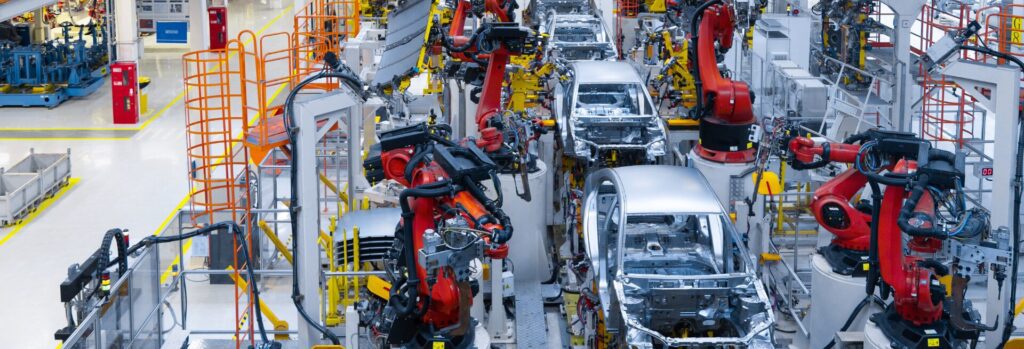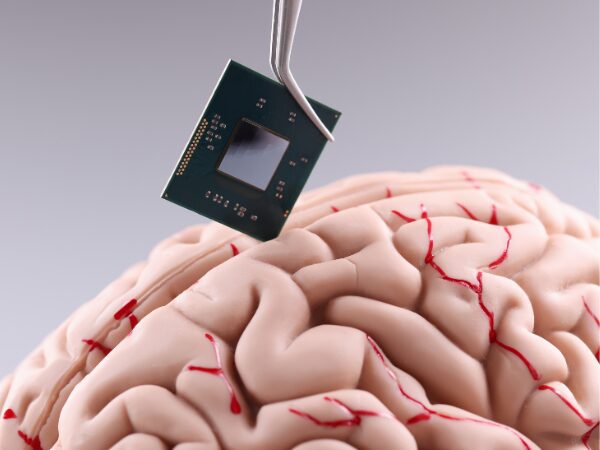The Role of Brain-Implanted Chips in the Future
Will brain-implanted chips be a norm in the future? In this article we explore the development of...

The automotive industry, a cornerstone of modern civilization, has continually demonstrated a commitment to embracing innovation in order to rethink the concept of transportation. In the context of increasing automation, the sector is currently experiencing a significant transformation driven by the incorporation of intelligent manufacturing technology. This article explores the comprehensive advancements, state-of-the-art technologies, and practical real-world implementations that combined mark the emergence of intelligent manufacturing in the automotive industry.
Smart manufacturing, often referred to as Industry 4.0, signifies the integration of digital technologies, data analytics, and automation to enhance the effectiveness, quality, and flexibility of production operations. The automobile industry is utilizing smart manufacturing techniques to adapt to the changing landscape of increasingly sophisticated vehicles and developing consumer expectations. This transformation goes beyond making little improvements and instead aims to satisfy the demands of a new era.

The profound and far-reaching effects of smart manufacturing in the automotive industry resonate across all aspects, resulting in tangible and practical implementations.
The implementation of agile production lines in smart manufacturing facilitates the rapid adaptation and reconfiguration of production processes in response to dynamic market needs. The efficiency of just-in-time manufacturing is enhanced through the utilization of sensors that transmit real-time data on inventory levels and production progress.
The manufacture of Electric Vehicles (EVs) is significantly dependent on the implementation of smart manufacturing techniques, therefore driving the revolution in this industry. The accurate assembly of electric vehicles (EVs) is imperative due to the complex nature of their systems and components. Smart manufacturing, which relies on data-driven techniques, plays a crucial role in facilitating the smooth integration of these systems.
The utilization of data analytics obtained from intelligent manufacturing systems provides decision-makers with valuable information regarding production efficiency, resource allocation, and the ability to foresee maintenance needs. The utilization of a data-driven methodology results in enhanced operational efficiency and decreased periods of inactivity.
The implementation of smart manufacturing plays a crucial role in advancing sustainability initiatives through the optimization of energy usage, waste reduction, and enhanced resource utilization. This is consistent with the increasing focus on environmentally sustainable production methods.
As we contemplate the future, the prospect of smart production in the automotive industry continues to evoke excitement. The combination of Industrial Internet of Things (IIoT), Artificial Intelligence (AI), Machine Learning (ML), and collaborative robots (cobots) is anticipated to initiate a transformative phase in manufacturing, characterized by enhanced efficiency and the ability to respond effectively to dynamic market fluctuations. The establishment of a seamless integration between manufacturers and suppliers, facilitated by the exchange of data, has the potential to foster a comprehensive ecosystem in which interruptions in the supply chain are effectively mitigated.
In summary, the adoption of smart manufacturing by the automotive sector is fundamentally reshaping the landscape of production. The industry is exploring a wide range of opportunities, including adaptable assembly lines and quality control guided by artificial intelligence. Smart manufacturing not only enhances operational efficiencies, but also promotes the adoption of safer and more sustainable methods. The automobile industry is undergoing a significant transformation with the implementation of smart manufacturing, as technological advancements merge with traditional practices to pave the way for a promising future.
Companies that are innovating in this sector are likely to be eligible for several funding programs including government grants, and SR&ED.
Want to learn about funding opportunities for your project? Schedule a free consultation with one of our experts today!
Sources:
Application of sustainable smart manufacturing technologies and toolkits in the automotive industry
Victoria Inyang, Grace M Kanakana, O T Laseinde Application of sustainable smart manufacturing technologies and toolkits in the automotive industry | International Journal of Low-Carbon Technologies | Oxford Academic (oup.com)
Industry 4.0 Development and Application of Intelligent Manufacturing
Guo-Jian Cheng; Li-Ting Liu; Xin-Jian Qiang Industry 4.0 Development and Application of Intelligent Manufacturing | IEEE Conference Publication | IEEE Xplore
Explore our latest insights
More arrow_forward
Will brain-implanted chips be a norm in the future? In this article we explore the development of...

Writing a grant proposal is a difficult task for business owners but it is a task that should not...

The new clean investment tax credits have the potential to make a significant impact on Canadian ...

What's next in the world of business funding? We've analyzed the data and discovered the emergenc...